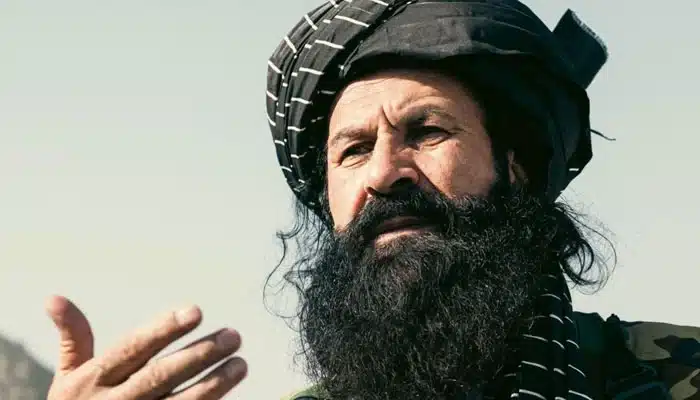ISLAMABAD: The assassination of Afghanistan’s interim Minister for Refugees Khalil Haqqani in Kabul is bad news for the Afghan Taliban, but an especially grim development for Pakistan.
According to background interviews with Afghan and Pakistan officials, The News has learnt that Haqqani’s death has deprived Pakistan of a significant voice within an apparently hostile Taliban government.
Since the days of the Soviet War, Khalil became a legendary figure in Afghanistan, much like his elder brother Jalaluddin Haqqani. During the US-led war on terror, Khalil was seen as a militant opponent by the US, as reflected in the bounty on his head.
The Afghan Taliban took control over Kabul on August 15, 2021, and this correspondent met Khalil Haqqani on August 21 for a memorable interview in the Afghan capital.
The US had announced a bounty on him because post-9/11, Khalil Haqqani facilitated attacks against the US. Like his elder brother, he had turned against America. The leadership of the influential Haqqani family had seemed to transition to Siraj Haqqani alias Khalifa, the current Afghan interior minister, following Jalaluddin’s death. However, behind the scenes, Khalil managed affairs discreetly.
Khalil was previously accused of masterminding several suicide attacks, an ironic twist given that he eventually fell victim to a suicide bomber in the mosque adjoining his ministry of refugees in Kabul.
According to reports, the assailant entered the secure compound under the guise of a poor man with a hand plaster that concealed explosives. Apparently, the bomber entered the highly secure compound telling security that he wanted to see Khalil to hand him an application for some assistance.
Despite the 2020 peace agreement, the US maintained a $5 million bounty on Khalil. An Afghan official, familiar with the incident’s details, indicated that Daesh was likely behind the attack — though investigations are ongoing.
Pakistan’s Special Representative for Afghanistan Sadiq Khan has condemned the act of terrorism and expressed condolences to the Afghan government and people.
Khalil was laid to rest in Paktia province, near the Pakistani border. In interviews, he had once said: “We did not become America’s enemy; it was America that took this enmity upon itself by occupying our land.”
Khalil recently played a key role in facilitating peace in the Tehreek-e-Taliban Pakistan (TTP) conflict between Pakistan and Afghanistan, where Pakistan labelled the TTP terrorists and Afghanistan considered them refugees. While his efforts could not bring any big breakthrough, he was seen as instrumental in finding a middle path in the tense relations between the two countries.
Known for carrying an American M4 carbine in Kabul, Khalil apparently used it as a symbol of his victory over the US.
In the end, the saying “people who live by the gun, die by the gun” seems to have proven true not only for Khalil but perhaps for the war-torn regions of both Pakistan and Afghanistan.

